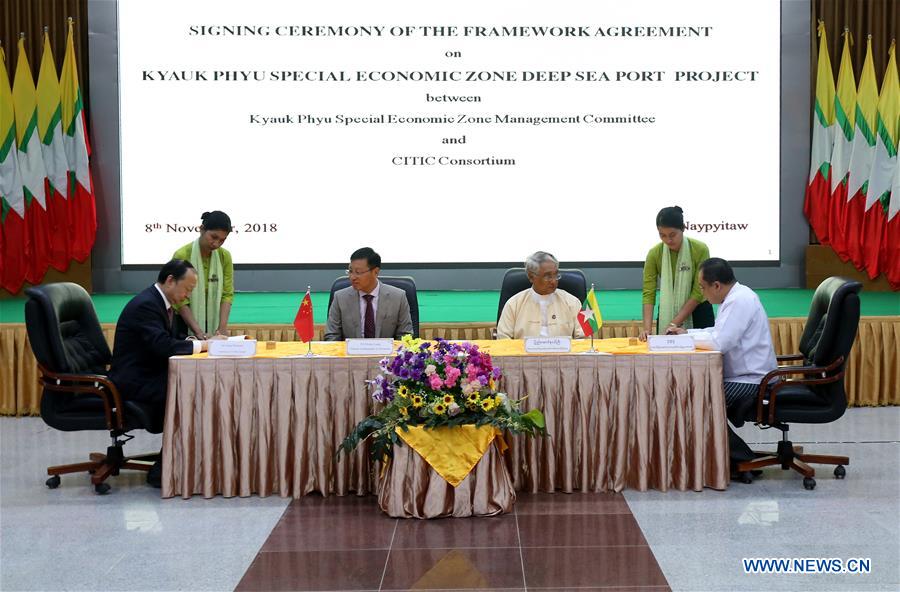
Myanmar's Minister of Commerce Than Myint (3rd R), Chinese Ambassador to Myanmar Hong Liang (3rd L), Myanmar's Deputy Minister of Planning and Finance and Chairperson of the Management Committee of the Kyaukphyu SEZ U Set Aung (1st R) and President of CITIC Group Chang Zhenming (1st L) attend the signing ceremony in Nay Pyi Taw, Myanmar, on Nov. 8, 2018. (Xinhua/U Aung)
China and Myanmar signed an agreement on Thursday to move forward a multi-billion dollar deep sea port project in Kyaukpyu, a strategic town along the coast of the Bay of Bengal, after negotiations dragged for years due to financing and other issues.
At a ceremony in the Myanmar capital of Nay Pyi Taw, the Chinese consortium led by State-owned conglomerate Citic Group signed the framework agreement with the Kyaukpyu Special Economic Zone Management Committee on the development of the deep-sea port.
Under the framework agreement, China will fund 70 percent of the investment for the project and Myanmar will pitch in the remaining 30 percent. The initial phase of the project will include two berths with a total investment of $1.3 billion, according to the agreement. A joint venture will be set up to construct and operate the port.
The signing of the framework agreement marks a significant step for the port project, which has been stalled since 2015, and for the continued implementation of the China-proposed Belt and Road initiative (BRI), which has come under increased scrutiny because of cases such as the Kyaukpyu port project.
The Chinese consortium first won the bid to construct the port in December 2015 with an estimated investment of $7 billion but further development was halted due to disagreement between the two sides over details of the project's funding.
Initially, the project was to be 85 percent funded by the Chinese consortium but, after an election, the new Myanmar government asked for a reduction in the Chinese companies' stake in the project to 70 percent.
Prolonged negotiations fueled criticism of the BRI, which some foreign critics said could add to local debts and even threaten other countries' sovereignty.
But the Chinese government has maintained that the BRI is an open platform to facilitate regional and global economic integration and to help countries along the routes with economic growth and job creation.
The Kyaukpyu project is estimated to bring 100,000 jobs to the local community and will contribute as much as $15 billion in tax revenue to Myanmar. Once completed, the port will have an annual gross output of $3.2 billion.

